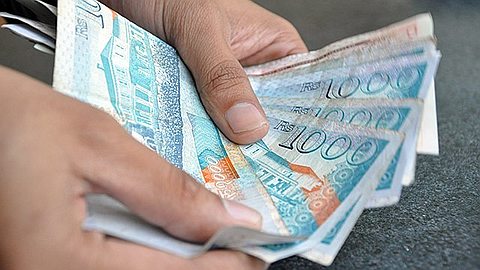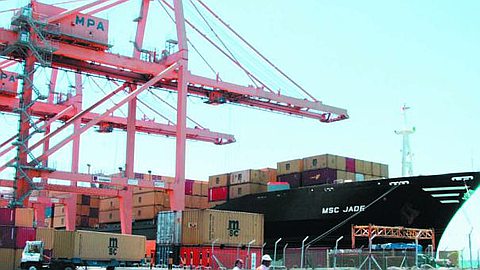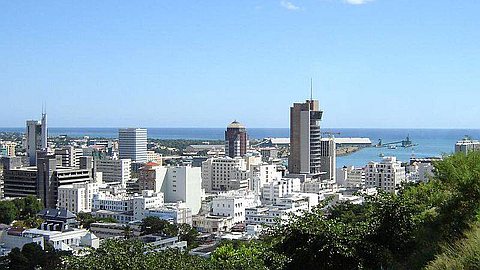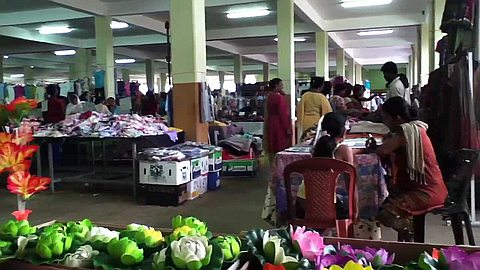Exports Rose Despite the Crisis
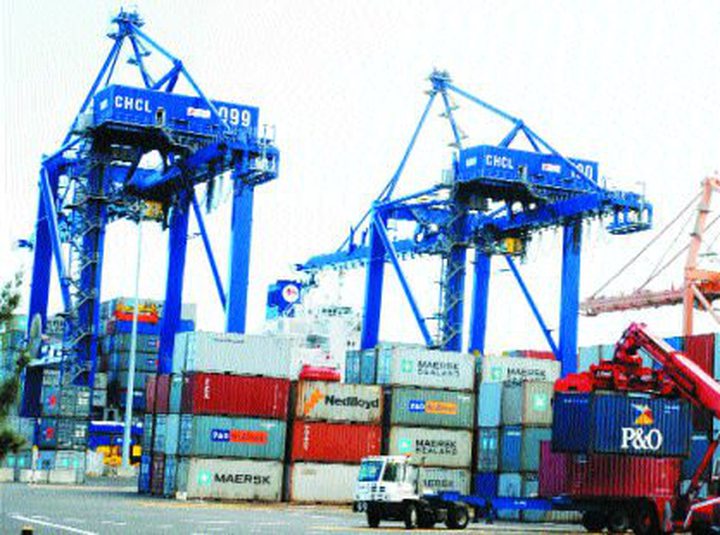
According to available figures, over 50% of our exports are destined for the European market. The crisis that exists in this part of the world has had an impact on local businesses that operate in this market. Not to get caught in a trap, many entrepreneurs have turned to other markets. This explains the good performance of exporting firms for the period January to June 2013, compared to the same period in 2012. Thus, the value of exports increased from Rs 22.49 billion to Rs 23.17 billion.
Meanwhile, the textile expects better days after a drop in orders in recent months.
Some sectors fizzle, others are gaining ground
While some sectors, like tourism, are hard hit by the ongoing crisis in many parts of the world, others arrive to take their game, like textile and spinning. Helped by the choice of the most promising new markets traditional markets, these sectors have export to grow in the first half of the year.
The textile and spinning rose by 17.3% of exports. These two key sectors of the economy have yet experienced the turmoil of the crisis in Europe. Nevertheless, the European Union and South Africa are the two largest export markets for textiles. The United States and Australia followed far behind with 10% of exports. However, operators are optimistic about the development of the textile and spinning.
Thus, the situation, they argue, should settle down in the next six months. He hope to strengthen presence in Mauritius South African and American markets, especially under the Africa Growth and Opportunity Act. In addition, says Ahmed Parkar, director of Star Knitwear, take risks. "It is not only to develop the business but have both a vision and clients over the long term," he told the Early Bird. One of the recommended action is to invest in new technologies to increase productivity. He also thinks there should be more awareness of the opportunities offered by operators in the U.S. market.
The textile industry employs a major part of the local labor force with some 55 000 direct jobs and 150 000 indirect jobs.
Other companies operating in niche rarely used are also on track, like the Labourdonnais Orchards, where exports are going well. Reaz Gungah, Processing Manager of the company, explained that out of the hotel market in Mauritius Labourdonnais Orchards have a great breakthrough in the United States, the United Kingdom and Australia. The Swiss market also appears carrier, which told our party that exports of the company are expected to grow 10% in the coming months.
The products of the sea, thanks to the agreements signed with the European Union and other countries, mainly Asian, also know a good swing. Thus, for the first two months of the year, exports of marine products grew by 12%, performance characteristic of 'seafood' in the past three years.
Jewelry is another area where export growth is noteworthy. Thus, for the first half of this year, exports of jewelry, precious and semi-precious stones, rose 8.4%. Available figures also show a 10% growth in exports of gold, silver and diamonds for the first two months of 2013, in spite of the volatility of commodity prices. The EU remains the leading market in the export of jewelery, watches and diamonds. Nevertheless, some companies also eyeing the Middle East and the United States.
But all is not rosy for the country's economic activities, starting with tourism, which increased difficulty. To the point that operators believe that 2013 is the worst year for the tourism industry. Bissoon Mungroo, president of the Association of Hotels Charming, does not hide his pessimism. For him, tourism goes wrong and it affects mostly small hotels. "There is a lack of tourists as some major hotels sell off prices, it greatly affects our operations," he said. In addition, the growing number of villas is another factor that affects the small and medium hotels as tourists prefer to stay there because of the low prices that are offered. Bissoon Mungroo goes further by saying that he expects no recovery for the tourism sector over the next six months.
The reason is, according to him, the delay of the Mauritius Strategy, compared to our competitors, to find the most promising markets. "We should have put more emphasis on the Indian market and it is unfortunate that we can not offer new leisure tourists. We can not solely rely on the beach, the sun and the sea when other competitors are working extra hard, "he laments.
For Ajay Jhurry, president of the ATO (Association of Tourist Operators), this is another explanation. Tourist arrivals have increased slightly since the beginning of this year, he said. But, we could achieve better levels if the marketing strategy had been better applied, he adds. For him, the hotel occupancy rate can not be generalized because it depends on the marketing strategy and each market to which these hotels are moving. At the ATO, it indicates that the association has already established a long-term strategy. Thus, despite the difficulties, he believes that tourism will grow this year.
